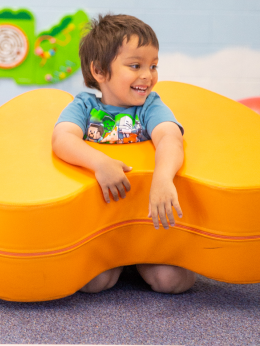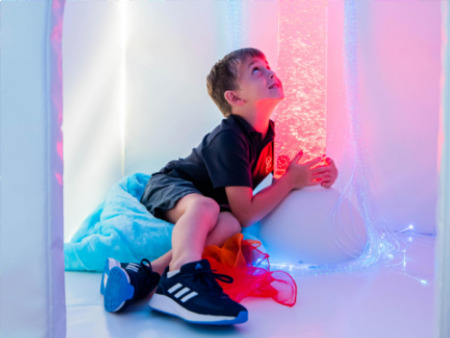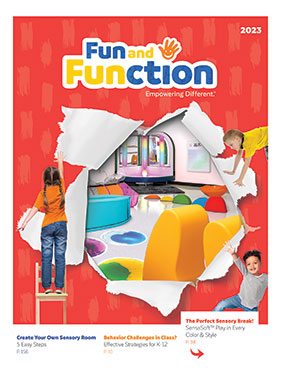Do you have an indoor pool accessible to you? Well, you might just want to get Johnny out of the bathtub and try some swim lessons this winter. I'm not minimizing the fun of swimming in the summer. But, swimming year round can be highly beneficial, especially to children on the autism spectrum or those with sensory processing disorders.
Take a look at just a few of the benefits:
- Coordination and Motor Planning: Swimming uses nearly every muscle in the body and requires a great deal of motor planning and coordinated effort to do so. But, have no fear. You need not be an Olympian to get started. A great swim teacher or therapist can get your child swimming like a fish.
- Breathing and Nose Blowing: Many kids with sensory disorders do not like to blow their nose (a necessity for wellness and good health). Swimming will teach them to breath and blow bubbles underwater which will transfer to daily activities such as blowing the nose.
- Touch Desensitization: Is your child hypersensitive? Swimming will both desensitize your over responder and help waken up your under responder. And, sensory seekers love the water!
- Social Skills and Group Participation: Even if you have private lessons, there will be other kids and people in the pool. Most places offer group lessons as well and adapted group swim lessons too. If not, just ask.
- Communication:Swimming opens up a whole new world of body and spoken languages.
- Self Confidence: I need not say more?
Here are just a few tips before you toss your kiddo into the pool:
- Prepare: Have a talk about where you're going and why. If your child is non-verbal, get out the communication board. You may want to laminate one and discuss some symbols with the swim teacher or therapist that might come in useful. Make sure you have a special swim bag with towel, goggles and change of clothing. Your child may need extra transition time. It's a good idea to spend some time in the shower getting wet before you head out to the pool.
- Facility:Check out the facility before you go. Is it too noisy, too cold or too warm? You can discuss these things with the facility or pick a different one.
- Routine: Swim days should always have the same routine so your child knows what to expect and when.
- Encouragement: Make a special swim chart with stickers. Encourage new skills with positive reinforcement. Point out achievements and milestones to your child.
- Persistence: Don't give up. Some swim days will be better than others. Keep it going!
Check out our collection of outdoor play tools and equipment!


















Comments